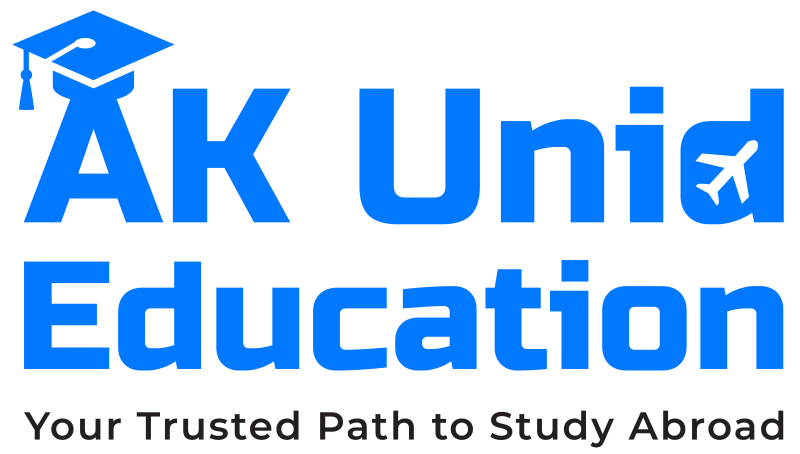FAQs
Frequently Asked Questions About Studying Abroad
Application Procedure
Certain countries allow students to remain after completing their studies to gain work experience or explore temporary job opportunities. You can also apply for a work visa to extend your stay, pending approval.
Visa requirements vary by destination. It’s important to review the specific criteria for your chosen country, including required documentation, financial evidence, health insurance, and application steps. Ensure you allocate enough time for the visa processing.
Application requirements vary by program, but universities often request:
- Personal and academic details
- Essays or statement of purpose
- Letters of recommendation
- Language proficiency test results
- Resume or CV
- Official academic transcripts
- Passport-sized photos
- Study approval or consent forms.
The process involves applying through the consulate or embassy of your destination country, submitting all required visa documents, and attending a visa interview as part of the procedure.
You can fund your education abroad through various options such as scholarships, grants, student loans, financial aid, and part-time work. Explore scholarships specifically for Sri Lankan students, government-funded programs, and financial assistance offered by universities.
The student visa process typically involves submitting an application to the consulate or embassy of your chosen country, providing all necessary visa documents, and attending a visa interview as part of the requirements.
Contact us for personalized consultation and pricing.
Program and University Selection
You can refer to reputable global ranking agencies such as QS World University Rankings and Times Higher Education Rankings. These rankings evaluate universities based on criteria like academic reputation, research impact, faculty-student ratio, and more, helping you make an informed decision about the best university and course for your goals
When choosing the ideal university for your career aspirations, consider factors such as the university’s academic reputation, the courses it offers, campus facilities, and the support services available for international students both on and off-campus.
It’s best to start as early as possible, ideally 9 months before your intended intake. Planning involves multiple steps, including selecting the right destination, course, university, and preparing necessary documents, such as visas and exams. Having a 3-4 month buffer is recommended, as the process can take time depending on the country.
English Proficiency Tests
- IELTS
- TOEFL
- SELT
- PTE
- DTE
Most English-speaking countries require English proficiency tests for university admission, so taking these tests is necessary.
Admission requirements differ depending on the course and country you apply to. In many cases, universities conduct admissions through entrance exams like the GRE or GMAT. Additionally, you may be required to take an extra English language test. Achieving high scores can strengthen your application, so it’s important to always verify the specific eligibility criteria.
Common Inquiries
We specialize in placements for Australia, the UK, Canada, New Zealand, and Japan.
From university applications to visa processing, pre-departure orientation, and beyond.
Contact us for personalized consultation and pricing.
The university application process can feel overwhelming, but you can simplify it by following these steps:
- Research and Narrow Down Options: Explore and select universities that align with your goals.
- Review Admission Criteria: Ensure you meet all the requirements for your chosen courses.
- Gather Necessary Documents: Collect all the required paperwork, such as transcripts and test scores.
- Complete and Submit Online Application: Fill out the application form and submit it through the university’s portal.
- Pay the Application Fee: Settle any application fees as required.
- Monitor Your Application: Keep track of your application’s progress online.
- Apply for a Visa: If accepted, apply for a student visa.
- Receive Acceptance and Prepare for Departure: After being accepted, get ready for your journey.
- Arrange Travel: Organize your travel plans to the university.
The key intake periods are in January and September, with certain countries also providing an extra intake in May.
The length of study abroad programs varies based on the country and other factors:
- Certificates/Diplomas: a few months
- Bachelor’s: 3-4 years
- Master’s: 1-2 years
- PhD: approximately 5 years
Lifestyle of International Students
The cost of living for students varies based on the country, budget, and lifestyle preferences. It typically covers accommodation, food, transportation, and personal expenses.
Yes, many students work part-time to help cover expenses and build their CVs. Most countries allow up to 40 hours of work per fortnight during academic terms.
Yes, the majority of countries mandate health insurance for international students.
Post-Graduation Work and Lifestyle
Post-Study Work Rights (PSWR) allow international students to stay in their host country after graduation to live, study, or work. The visa duration typically ranges from 2 to 5 years, depending on the qualifications.
Yes, in most cases, this is possible, though the process depends on the country. Many nations offer specific visa categories or pathways that allow graduates to transition from a student visa to a work visa or permit.
Yes, there may be restrictions, often tied to your qualifications, visa conditions, occupational regulations, or specific employment sectors. Some visas may also impose limits on work hours or job types.
